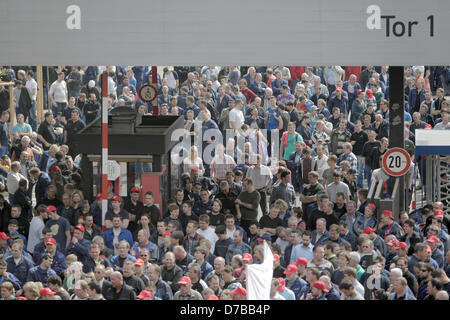

Its economic development shows great parallels to the Ruhr area. Saarland, located in the border triangle of Germany, France and Luxembourg with a population of just under 1 million, has been particularly hard hit by this upheaval. 50 years of the automotive industry in Saarland While millions of workers worldwide are losing their livelihoods, the fortunes of shareholders and the multimillion-dollar salaries of top managers continue to grow. The vast sums spent on rearmament and war are being recouped through cuts in education, health care and social services. The “profits before lives” policy in the pandemic has caused millions of deaths worldwide and lifelong illnesses for even more. The dramatic rise in inflation-a consequence of trillion-dollar state giveaways to the financial markets and the NATO offensive against Russia-is driving countless working class households into poverty and hardship. Yet the restructuring of the auto industry is only one front in the capitalists’ global offensive against the working class. The “bidding contest” between the Ford plants in Saarlouis and Valencia, in which both the German IG Metall and Spanish UGT unions participated, is only the shabbiest form of this rigged game. They agree with the corporations on wage and job cuts, suppress any resistance to them and divide workers by playing off one location against another. The company’s most important aides in this are the trade unions and their works council representatives. CEO Jim Farley announced that the company aims to achieve an operating return of 10 percent by 2026. Ford reported a profit of nearly €9 billion on sales of €115 billion for 2021. Global auto companies are using the shift to less complex electric motors to reorganize the whole production process and squeeze every last ounce of profit out of workers. The Ford-Saarlouis workforce is representative of workers around the world whose livelihoods are being destroyed. Ford Motor Company’s decision to halt production at its plant in Saarlouis, Germany in 2025 is part of the biggest international assault on the social gains and rights of the working class since the 1930s.Īt stake are not only the futures of the families of the 4,600 directly employed workers but also another 1,500 workers in the neighbouring supplier companies and the economic life of the entire region, where several tens of thousands of jobs depend upon the auto industry.


 0 kommentar(er)
0 kommentar(er)
